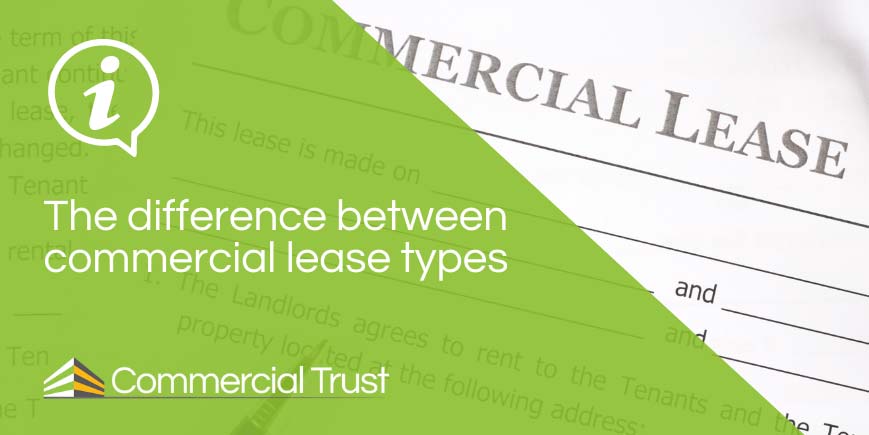This information should not be interpreted as financial, tax or legal advice. Mortgage and loan rates are subject to change.

Categories: guides | commercial mortgage guides
Converting commercial to residential property is growing in popularity. There are several reasons for this trend. It's not just about making use of empty buildings. It's also about breathing new life into urban areas as retail shifts online. These conversions can transform towns and cities.
Financially, they can be a smart move too. Developers can reap benefits like increased property value and new rental income opportunities, but may need development finance to do the required works. In short, turning a commercial property into a home can be good for both the community and the pocket.
Why should you consider converting?
Greater profit margins:
Often, commercial properties, especially those in declining retail areas, can be purchased at a more reasonable price. After conversion, these transformed residential spaces, particularly in prime locations, can command higher sale or rental values.
Meeting housing demand:
With urban areas in the UK facing housing shortages, converting commercial to residential spaces can help meet the rising demand for homes. This not only fills a societal need, but also positions developers favourably in the market.
Diversification of portfolio:
Diversifying investments reduces risk. Adding converted properties to a portfolio can offer developers a broader asset base, ensuring more robust financial stability.
Government support:
The government is trying to tackle housing shortages and has recognised the opportunity offered by converting commercial to residential property. High-street retail outlets in particular are waning, in favour of online shopping, offering an opportunity to boost residential property in prime urban areas.
Sustainability and environmental considerations:
Repurposing existing structures can be more eco-friendly than tearing down and building anew. It conserves resources and reduces construction waste, aligning with global sustainability goals.
Navigating property development finance
Property development finance is a specialised funding solution designed for developers. Unlike standard loans, this type of finance is specifically tailored to building and renovation projects.
Benefits for developers
Property development finance offers clear advantages to developers. One of the main benefits is access to large funds, which can cover the majority of project expenses.
Designed specifically for ground-up builds or renovations, its repayment terms align well with project phases. This optimises cash flow. Additionally, using this financing option allows developers to keep their other assets liquid, to pursue other investment opportunities, whilst works are undertaken.
Getting property development finance
For developers aiming to secure development finance, a detailed project outline is the first step. Lenders look for comprehensive build plans, projected costs, and expected returns.
Choosing the right finance provider is essential, and a broker like Commercial Trust can assist with this. Once a lender is identified, presenting a strong application showcasing the project's feasibility is crucial. Being thorough in this stage can lead to successful and quicker loan approvals.
Steps to convert commercial property to residential
Understand local council regulations
Each council has its own planning rules. It's crucial to know these before starting any project in order to assess its viability. Different areas may have different requirements. Being informed can save time and money.
Engaging professionals
Conversion projects can be complex. It's sensible to work with experts. Choosing professionals with experience in the type of project you have in mind can help a project run to plan, which may affect costs too.
Where you are taking on your first property development, a lender will expect your contractors to have the experience you are lacking. This is because it mitigates the risk of lending in this scenario.
But even if you have experience yourself, if you work with contractors who are unfamiliar with your specific project needs, you risk unexpected problems and slower delivery, which can mean exceeding critical deadlines and lead to unexpected and significant costs.
Architects and contractors who have a lot of experience in similar property development projects to yours will know how to go about it, the challenges involved, and potential pitfalls, which can help you assess how much contingency budget you should set aside just in case. In short, their insights can be invaluable.
You can use the Architects Register to find a local architect.
You can use the Royal Institution of Chartered Surveyors to find a local chartered surveyor.
You can use the Federation of Master Builders to find a local builder.
Acquiring necessary permissions
There are a number of circumstances in property development where you will need planning permission. These include where any major changes are proposed, where you will be demolishing to rebuild from the ground up, or where there is a change of use to a building.
Typically converting a commercial property to a residential one will require significant works and so will require planning permission.
- Visit the UK government website for information on planning permission in England and Wales.
- Visit the Scottish government website for information on planning permission in Scotland.
- Visit the Welsh government website for information on planning permission in Wales.
To ensure the building you end up with is structurally robust, it will be necessary for it to meet building regulations. To assess whether or not you need building regulation approval on your project:
- Visit the UK government website for information on building regulations in England and Wales.
- Visit the Scottish government website for information on building regulations in Scotland.
- Visit the Scottish government website for information on building regulations in Wales.
When you employ property development professionals, they will be able to guide you on planning permission and building regulations, which will save you huge amounts of time and energy and keep you the right side of the law.
Get the work done on time and on budget
The expression ‘time is money’ is very pertinent when it comes to development finance projects. Even if your contractors are working on a fixed price for completing a piece of work, rather than hours worked, a project that misses its completion deadline has significant financial implications.
If you have taken out development finance, you will be bound to a repayment deadline. A lender may approve an extension, but this is not guaranteed. You may be able to find an alternative lender and a broker such as Commercial Trust can help you navigate securing this, or getting development exit finance as a last resort, but the less stressful outcome is clearly to meet your completion deadline.
Whether you are borrowing money to fund the development, or using your own capital, going over a completion deadline ties up your money in an ‘illiquid asset’ (i.e. you have money but cannot spend it, as it is tied up in something, in this case, property) and slow down the steps towards realising profit.
The ultimate goal for making money from a development finance project is either to sell on the property/properties for a profit, or transition to long-term finance and rent them out. The longer it is before you can do this, the longer you carry the cost and do not benefit from the income.
Common challenges
Converting a property can often come with challenges. These include:
- Structural intricacies:Older buildings come with history and unique issues. From weakened walls to aged foundations, special attention is needed to maintain and renovate these spaces.
- Unforeseen expenses:Budgeting for conversions and ground-up builds isn't always straightforward. Unexpected damages or hidden costs can arise, making it essential to allocate extra funds (often called a contingency fund) for such surprises.
- Navigating regulations:Planning permission and building regulations can be intricate. Every council has its specific regulations, and understanding these nuances is crucial to avoid project delays. Appointing a professional who specialises in this subject can be hugely beneficial.
So, should you take on converting commercial to residential property?
Converting commercial properties to residential spaces is more than a trend; it's an evolution in the property landscape. As this shift continues, securing favourable property development finance can help those wanting to capitalise on it fund their plans.
Property conversion offers vast opportunities, from revitalising urban areas to offering profitable investment avenues. It is a very specialist part of the property investment industry, so if you are new to it, take a risk averse approach to protect yourself financially.
By navigating financial options wisely, developers can truly capitalise on the benefits of conversion and play a pivotal role in shaping our urban future.
FAQs
Costs can vary widely. It depends on the property size and renovation needs. It's essential to get a detailed quote from professionals. They can provide a clearer idea based on your specific project.
Yes, planning permission is typically required. Converting a shop to a house changes its use class. Always check with the local council. They provide guidelines and approval processes.
Generally, you can't live in a commercial property without changing its use class. It's essential to get the right permissions. This ensures safety and legal compliance.
Yes, converting an office to residential property usually requires planning permission because you are changing the use of the building. Consult with the local council to understand the process.





